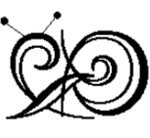Results
The winners of the competition are:
| Excelle nce Award Takahiro Hashimoto (Mitsubishi Electric) "Speeding up ray tracing using non-uniform ray firing distribution", (AP2020-15) Special Prize Kenshi Horibata (Panasonic) "Examination of ray tracing acceleration method using convex hull detection and multiple simple path search results", (AP2020-11) Ke ntaro Yamane (Doshisha Undae)" Efficient raytracing calculation method based on simple representation of environment and narrowing of propagation path" (AP2020-16) |
Contents of recruitment
- The Antenna and Propagation Research Committee will conduct the "2nd Radio Wave Propagation Modeling Competition" with the following contents in order to improve the propagation modeling skills of students and young engineers and to further revitalize the technical field related to radio wave propagation. Please join us.
Challenges
Faster ray tracing
- See competition overview for details
Hosted
Antenna and Propagation Research Committee
Operation
The 2nd Propagation Competition Executive Committee
Date of the event
July 15 -17, 2020
Venue format
- Presentation format at the July 2020 Antenna Propagation Study Group (hereinafter described as AP Lab.)
- Participants will be asked to post their papers to AP Lab in July 2020 and present them at the related sessions of this study group.
Awards
- Excellence Award (prize of 10,000 yen): Awarded for one presentation that was deemed to be the best based on the overall score of the evaluation.
- Special Award: Awarded for one or so presentations specifically evaluated by the judges from the viewpoint of innovative ideas, etc.
Application Period
From January 1, 2020 to July 2020, application deadline (May 2020)
How to apply
Please apply by e-mail at the following inquiry. After applying, we will send you detailed information to tackle the problem.
Contact information
Tetsuro Imai, Secretary, 2nd Propagation Competition Executive Committee (imaite@mail.dendai.ac.jp)
Overview of radio wave propagation modeling competition
Purpose of the Competition
In order to realize high-speed and high-quality wireless communication environments such as next-generation mobile communications, IoT, and connected cars, it is essential to understand complex radio wave propagation characteristics, and accurate modeling, estimation, and simulation of radio wave propagation characteristics are extremely important for practical application. Therefore, in order to improve radio wave propagation-related technologies for students and young engineers and to further revitalize this technology field, we will conduct a competition on "speeding up ray tracing method".
Details of the implementation
In the common environment presented by the executive committee, the speed of the raytrace operation proposed by the participants is competed on the premise of meeting a certain estimated accuracy (for propagation loss).
(Prerequisites)
- Participants will evaluate the effect from the viewpoint of estimated accuracy* of calculation speed and propagation loss by implementing the conditions (frequency, position and height of base station, position and height of mobile station, urban environment) to specify the proposed ray tracing method in advance. The results will be presented at the study group along with the contents of the proposal (idea of high speed, concrete method, quantitative effect and its index, etc.).
- *Estimated accuracy is evaluated by comparison with FDTD analysis results conducted by the Executive Committee.
- The speedup method* is not limited.
- * Improved algorithms, simplified building shapes, and faster speeds by optimizing parameters.
- The software used for evaluation can be used not only with your own, but also with existing (commercially available) raytrace software*.
- *For those who wish, distribute a one-month licen
se for Wireless InSite.URL:https://www.kke.com/solution/theme/wireless-insite.html
- *For those who wish, distribute a one-month licen
- It may also be an evaluation of the acceleration method already proposed by the presenter (and his/her organization) or others. However, when evaluating proposals by other companies, the original paper should be clarified.
(Information and data to be distributed)
【Distribution at the time of participation application】
- Information on propagation conditions (area of propagation estimation, frequency, base station, mobile station conditions, etc.) to be evaluated in the competition is distributed.
- Building data (location, shape, material) of propagation estimation area
- Evaluation method of propagation loss estimation error by comparison with FDTD analysis results.
- Measurement data for accuracy ver
ification The data analyzed by FDTD under the above propagation conditions will be distributed after the participants post the paper. Participants are required to evaluate the propagation loss estimation accuracy of the proposed method from the RMS error with this data, and to clarify the results at the presentation.
About the commendation
Awarded to speakers who made presentations at AP Lab. in 2020. In the evaluation at that time, we consider not the effect of the proposed method (calculation speed and estimation accuracy), but also the viewpoint of "novelity, practicality, and understanding of the presentation".
- Excellence Award (prize of 10,000 yen): Awarded for the announcement of one of the most outstanding awards judging from the overall score* of the evaluation.
- Special Award: Awarded for one or so presentations specifically evaluated by the judges from the viewpoint of innovative ideas, etc. * Di
stribution of evaluation points: effect of proposal method (10 points), novelity (5 points), practicality (5 points), understanding of announcement (5 points)
Participant Schedule
- January 2020: Registration begins
- May 2020: Application deadline (until July AP Lab entry deadline)
- June 2020: Manuscript submission (see antenna propagation society homepage for details)
- June 2020 (after deadline): Verification of estimated accuracy of proposed method
- July 2020: Presentation (July AP Lab.) *Results announcements are posted on AP Lab.
- December 2020: Award (AP Lab., December)


